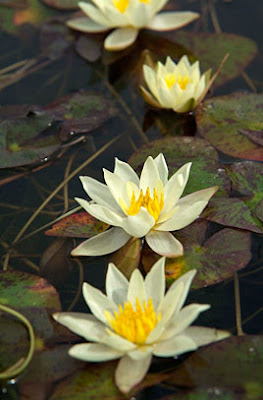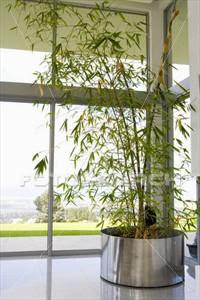Generally, and especially in the garden plants, the rust is
usually manifested through small bumps clustered reddish spores, orange or
brown on the back (bottom) of the leaf, but also often appear on stems as
blistering yellow orange or dark brown.
Once this disease appears, and if you do not take measures
to stop its effects, the plant loses foliage weakens and dies.
Hence the importance of conducting a regular monitoring of
the plants that adorn your garden, so early detection of the presence of these
fungi, as well as take some prophylactic measures to prevent its growth.
Since the cure of leaves affected by rust is very difficult,
it is best to reduce the risk of infection by excess moisture, hence it is
advisable to place the plants well apart to allow better ventilation and avoid
irrigation systems by spraying or fogging, since they moisten the leaves too
much, creating optimal conditions for the growth of fungi.
It is also desirable to have good drainage to avoid creating
a damp, warm and stagnant which may favor the onset of rust.
This sunflower evidences the ravages of rust. (Photo: Howard
F. Schwartz / Colorado State University)
Natural chemicals to fight disease
In the field of chemical resources against rust can be used
as preventive spraying with fungicides such as Triforine or oxycarboxin, which
also have curative action (in early stages) and can be sprayed in small
quantities and with less precision as the plant itself is responsible for
absorbing and distributing sap.
For products with oxycarboxin has to be careful not to
overdo your application because leftovers can fall into the ground and be
absorbed by the roots, causing the appearance of chlorotic (yellow) in the leaves
of some species of flowers.
To prevent rust you may also resort to application of copper
sulphate, either mixed with ammonium hydroxide as Bordeaux mixture and ammonium carbonate as Compound Nuez.
For those who prefer more natural methods to combat this
disease, there is the option of "organic fungicides," such as
horsetail tea or chamomile.
Decoction horsetail (Equisetum Arvense) is prepared by
macerating one kilogram of fresh plant in 10 liters of water, allowed to settle
and then applied to the soil and plants. As chamomile, it is advisable to soak
250 grams of flowers in a quart of water, let stand and apply.
To prevent the spread of rust, it is also necessary to burn
the leaves, stems and branches infected.



























